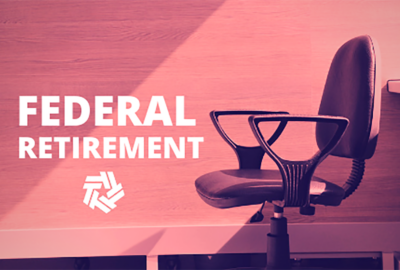So is there a best time, sweet spot, goldlocks moment in time when everything is near perfect for retirement? Unless the job requires them to retire in their late 50s, most federal and postal workers pull the plug in their early 60s. But some leave the first day they are eligible, while others tell colleagues they expect to be carried out.
For most workers that sweet age spot, the moment when it seems just right, depends on lots of things ranging from health and family situation to the stock market. In last week’s Washington Post, financial columnist Michelle Singletary wrote an excellent column around the five things you should ask yourself before taking early retirement.
Earlier this month Abraham Grungold, a long-time fed and part-time financial coach put in his retirement papers. He has done extremely well with his Thrift Savings Plan. Next stop, full-time coaching/retirement. Which inspired him to write about the anxieties of a federal retirement at any age. Whatever your age and status, check it out. He writes:
I remember when my dad retired. For him, it an easy process. He applied for Social Security, Medicare and he had his Individual Retirement Account (IRA). He trained his replacement, and his employer gave him a wonderful retirement party. I remember how happy he was on that day.
Today, federal employees have a complex preparation for retirement. But with proper planning and understanding the process can result in a successful outcome. Unfortunately, employees believe that when they reach their 25-to-30-year mark that their retirement is going to a simple process. The HR department hands them the 14-page application and you need to make some difficult decisions. Prior to retirement, you need to check with your agency if they provide some type of a retirement seminar within 5 years of retirement. But agencies have cut back in these areas and many federal employees must figure out their retirement on their own. If you are dealing with an HR person, don’t be afraid to ask how much experience do they have preparing retirement packages for the federal government? If you feel uncomfortable with an answer from your HR department, research it on the OPM website.
My clients have many questions regarding their CSRS/FERS retirement and their TSP. Below are the 10 most asked questions on the minds of employees who are contemplating retirement. Each person has their own individual needs and fears. Many of these decisions can make the difference of hundreds and thousands of dollars in your retirement. Do not postpone tackling these topics.
- When is the right year for me to retire?
- Can I afford to retire?
- How much insurance do I need?
- Do I get to keep my FEHB plan in retirement?
- What should I do about Medicare?
- When should I elect Social Security?
- Should I transfer my TSP to an IRA?
- Should I use my TSP to pay off my debts?
- How should I invest my TSP to handle withdrawals and inflation?
- What should I do about Required Minimum Distributions (RMDs)?
Do not wait to the last minute to figure out these questions. Before you submit your retirement application, either go to a retirement seminar or get some professional help to work through these important issues.”
Financial success can easily be achieved; it only takes a little effort.
Any questions or comments please contact me at Abraham Grungold – AG Financial Services or my Facebook page at FERS Federal Employees.
Nearly Useless Factoid
By Alazar Moges
The six largest turkey producing states (Minnesota, North Carolina, Arkansas, Indiana, Missouri and Virginia) account for 69% of all turkeys produced in the United States.
Source: Census Bureau
Copyright
© 2024 Federal News Network. All rights reserved. This website is not intended for users located within the European Economic Area.





